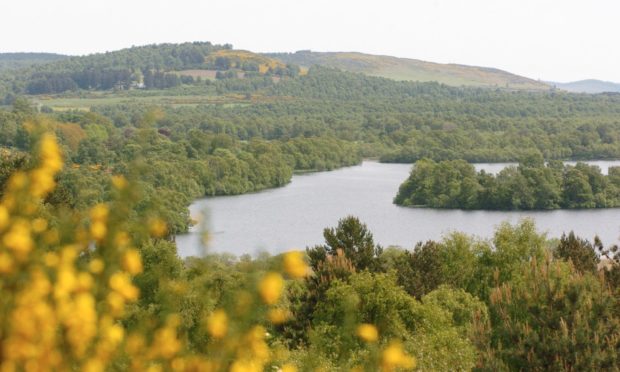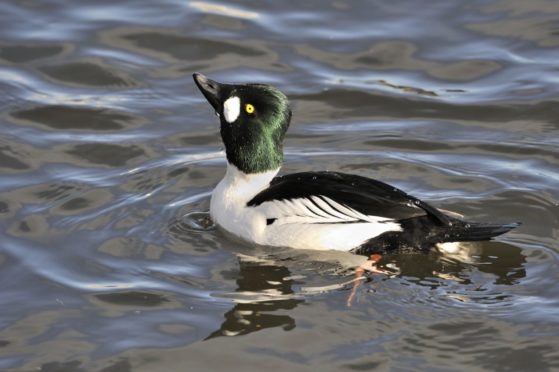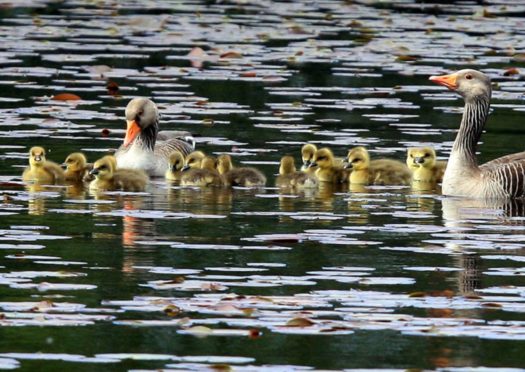Watersports enthusiasts have been ordered to stay off a Deeside loch for the rest of summer to protect nesting birds.
Loch Kinord at the Muir of Dinnet National Nature Reserve has become a popular spot for paddleboarders, kayakers and wild swimmers in recent months.
But NatureScot and the team at the nature reserve, near Aboyne, are becoming increasingly concerned about the impact the watersports are having on nesting birds, or lead to ducklings being separated from their parents and dying.
They held a consultation on the issue earlier this year, and have now revealed that, with immediate effect, the local access guidance has been updated to ask visitors to stay off the water during bird breeding season, from March 1 to August 31.
As part of the plans, signs will be placed at all entrances to Muir of Dinnet and a new leaflet will be produced to explain the dangers.
The restrictions are similar to those that have been placed on nearby Loch Davan since 2009, and are similar to the rules around keeping dogs on leads during nesting season.
Wildlife ‘must’ take priority
Gavin Clark, Tayside and Grampians operations manager, said: “We want everyone to have a wonderful time visiting the reserve, but we’re asking visitors to remember that Muir of Dinnet is first and foremost a nature reserve and wildlife has to take priority.
“Individually, someone going out on the water may not be aware of any problem, but put that together with a number of other people doing the same thing and it adds up to a significant disturbance problem for the birds.
“Our priority must be protecting the wildlife on the nature reserve, and we hope this change will salvage the 2021 bird breeding season on the loch.”
A stakeholder and community consultation was held by NatureScot in the spring, with reactions ranging from concern over elevated levels of camping, fires, litter and dogs off lead to concern over restrictions on activities.
Feedback from the consultation was released this week, which acknowledges there was “little consensus” about the best way forward.
Range of options considered
“A number of responses were from current/historic water access-takers who were concerned about restrictions on their activities. Others, from residents and community interests, were concerned about disturbance to the peace and tranquility of the nature reserve, as well as disturbance to wildlife.
“Some advocated a complete (year-round) cessation of all activity on the water. Concerns were expressed not just about access on the water, but also from elevated levels of camping, fires, litter, dogs etc all contributing to negative impacts on the NNR as a special place.
“Mitigation measures which were suggested by respondents included zonation of the loch using marker buoys. Our view remains that Loch Kinord is too small for zonation to work successfully. Similarly we did not feel that the offer of voluntary ‘marshalls’ on the water was likely to be practical and might indirectly lead to a further increase in activity.”
The document stresses it is not necessarily “individual behaviour” of visitors, but the cumulative impact on the “relatively small loch”.
Monitoring has shown that early morning bird counts on the loch are significantly higher than later in the day when visitors are present on the water.
Limiting users, through a permit scheme, was also suggested but deemed impractical.
The change to the access rules has been discussed with the Cairngorms National Park Authority.
The organisation will continue to monitor visitor numbers and behaviour on the site, as well as bird counts, and will make an evidence-based decision on the continuation of restrictions ahead of the 2022 season.
More information about responsible outdoor access in Scotland can be found on the Scottish Outdoor Access Code website.


